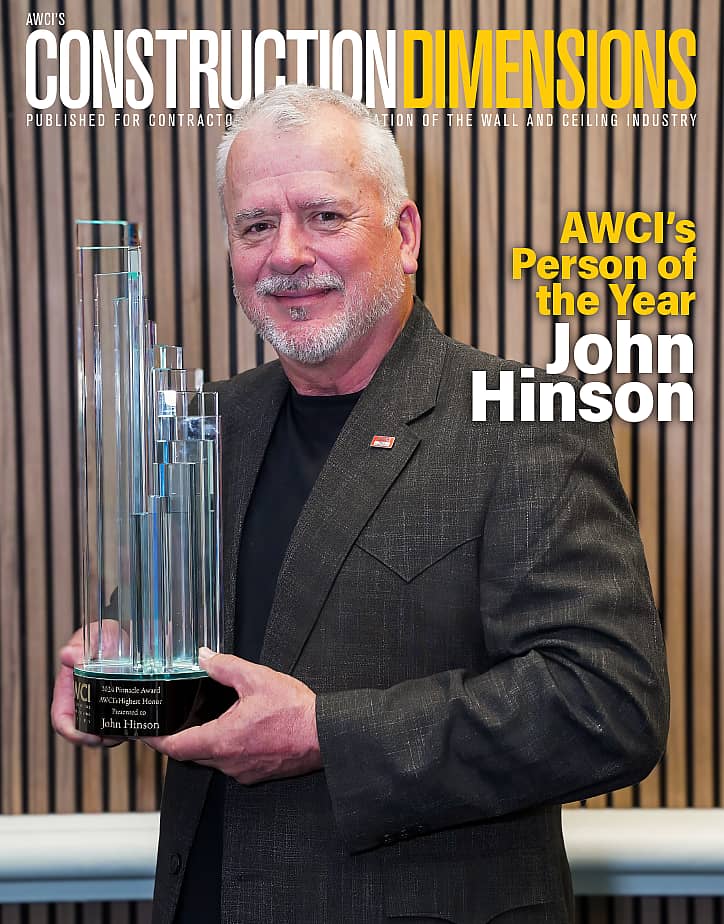Many construction workers are misclassified by their employers. They’re engaged as “contractors” and are not on company payrolls. A misclassified employee may lack minimum wages, overtime pay, workers’ compensation, unemployment insurance and other protections. And, misclassification gives a construction company an advantage, some say an extra 30 percent profit margin, versus responsible employers.
“Most [companies that misclassify workers] have been doing it in residential, where it is prevalent,” says Stan Marek, president and CEO of the Houston-based Marek Family of Companies. “Now they’re moving into commercial.”
Can the government do more to monitor and enforce workplace rules? To find out, I spoke with Dr. David Weil, administrator at the United States Department of Labor’s Wage and Hour Division.
Consent Judgments
“What we are very concerned about, first and foremost, is that contractors start by treating their employees exactly as that,” Weil says.
Wage and Hour’s authority is to ensure proper pay. Its job is to enforce the Fair Labor Standards Act, among other labor laws.
“Often in misclassification situations, people are paid by the piece irrespective of the number of hours they work,” Weil says. “At the end of the day, assuming they’re paid what the contractor said they’d be paid, they need to receive at least the minimum wage and, to the extent they’ve worked overtime, to be compensated at time and a half.”
Weil adds: “People are often told to report to work or are taken to a site, and they just sit around waiting. They are basically working off the clock. When they are on the job site, they are at work. They should be paid the minimum wage—at least.”
To show that Wage and Hour is acting with muscle, Weil mentions some recent consent judgments that his agency helped bring to bear.
In April, for example, Wage and Hour announced the results of a five-year investigation of illegal business practices by 16 defendants in Utah and Arizona. The consent judgment against these companies yielded $700,000 in back wages, penalties and guarantees for more than 1,000 construction workers. The defendants, operating collectively as CSG Workforce Partners, Universal Contracting, LLC and Arizona Tract/Arizona CLA, says a Wage and Hour statement “required the construction workers to become ‘member/owners’ of limited liability companies, stripping them of federal and state protections that come with employee status.”
In a separate but related case, a Wage and Hour news release in May noted that Paul Johnson Drywall, LLC, severed its relationship with one of the above-mentioned Arizona construction labor contractors, paid overtime back wages and agreed to promote awareness of proper FLSA compliance.
Weil says that Wage and Hour is also pursuing firms that retaliate against workers who report pay violations.
“We see it often in the drywall and construction industry,” Weil says. “Many of the workers are undocumented, or they’re exposed in one way or another, which becomes a basis for their vulnerability.”
He adds: “We’ve done investigations where individuals have recovered back wages and then—after we leave the scene, after the workers have been paid their back wages—the employers step forward and say, ‘Give us back your wages, or we’re going to fire you. We’re going to report you to Immigration.’”
Wage and Hour is trying to prosecute such cases aggressively. But how?
Memoranda of Understanding
“We now have memorandum of understanding with 21 different states,” Weil says. “We share information and work together.”
He adds: “An MOU helps responsible contractors in states where we have them. They help us to police misclassification.”
In the Utah and Arizona case cited above, state officials assisted Wage and Hour by sharing information through the Utah’s Worker Classification Coordinated Enforcement Council, an entity created by the Utah legislature. The U.S. Attorney’s Office for the District of Utah and the U.S. Department of Labor presented findings to federal courts in Utah and Arizona. The courts, in turn, approved the consent judgments.
“One can do right and do well,” Weil says. “It’s something labor secretary Tom Perez often stresses is a viable option in a business as competitive as drywall contracting.”
I’ll have more to report next month.
Mark L. Johnson tweets at @markjohnsoncomm and connects at linkedin.com/in/markjohnsoncommunications.



